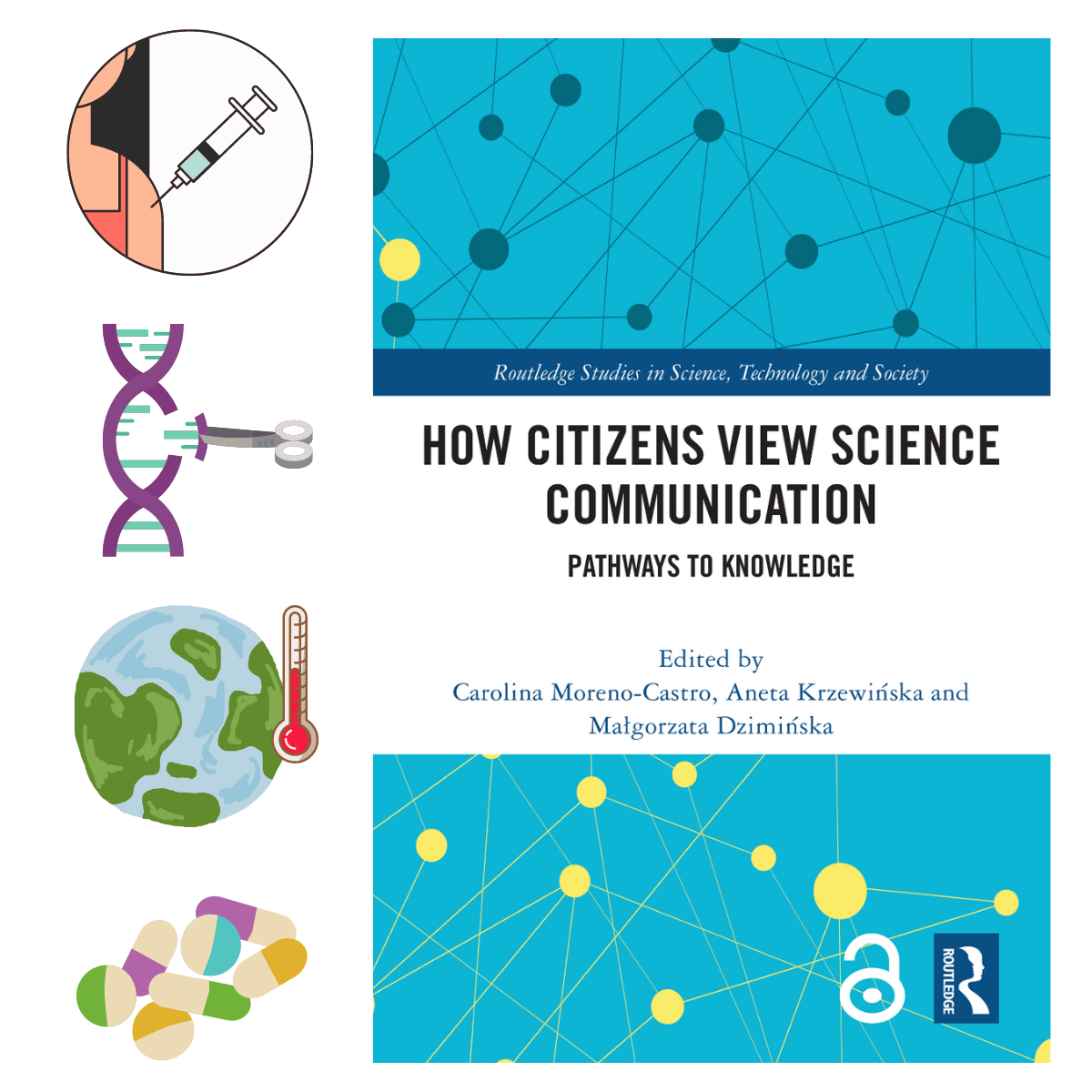How Citizens View Science Communication: Pathways to Knowledge is available in open access!
In the evolving landscape of science communication, the book How Citizens View Science Communication: Pathways to Knowledge emerges as a critical examination of the dynamic relationship between the public and the dissemination of scientific knowledge. Published by Routledge, this book stands out for its insightful analysis based on the European CONCISE (Communication Role on Perception and Beliefs of EU Citizens about Science) results, aimed to unravel the complexities of how science communication was perceived and interacted with by citizens across Europe.

The CONCISE project, which the European Commission funded, sought to identify effective science communication by exploring the public’s trust, engagement, and understanding of science. Through public consultations held in five European countries—Spain, Italy, Poland, Portugal, and Slovakia—the project gathered diverse perspectives on science communication, selecting four topics debated on health and environmental issues.
This book highlights the importance of trust in scientific institutions and the media, the role of social networks and personal beliefs in shaping perceptions, and the impact of misinformation on public discourse. It also explores the effectiveness of communication channels, from traditional media to digital platforms, in conveying science information to diverse audiences.
Carolina Moreno-Castro, Aneta Krzewińska, and Małgorzata Dzimińska coordinated the book, participating in four chapters alongside the colleagues of the consortium. Public consultations serve as participatory mechanisms designed to foster public dialogue and shape public policy. Carolina Llorente and Gema Revuelta, from the Science, Communication and Society Studies Centre at Universitat Pompeu Fabra, have contributed to the chapter titled "Collecting, analysing, and interpreting the results of the European public consultations on science issues."
This chapter outlines the public consultations conducted within the CONCISE project framework, which served as the basis for the empirical data analyzed in this book. The primary objective was to gather qualitative insights into how European citizens acquire science-related knowledge and how these channels influence their perceptions and opinions on four significant topics: vaccines, complementary and alternative medicine (CAM), genetically modified organisms (GMOs), and climate change. TThroughout 2019, a series of public consultations were conducted, involving the active participation of nearly 500 citizens. These have played a pivotal role in shaping standards for conducting science communication consultations, thereby contributing to the advancement of this field.
How Citizens View Science Communication: Pathways to Knowledge is a timely and valuable resource that illuminates the current state of science communication in Europe and charts a path forward for more effective and inclusive practices. This book offers compelling insights and practical guidance for anyone interested in the intersections of science, society, and communication. The quotations of the citizen participants in each country are a valuable example of citizen science, and the methodology of analysing debates was highly relevant to science communication research.
Read the full book here (available in open access):
Moreno-Castro, C., Krzewińska, A., & Dzimińska, M. (Eds.). (2024). How Citizens View Science Communication: Pathways to Knowledge (1st ed.). Routledge. https://doi.org/10.4324/9781003400943
